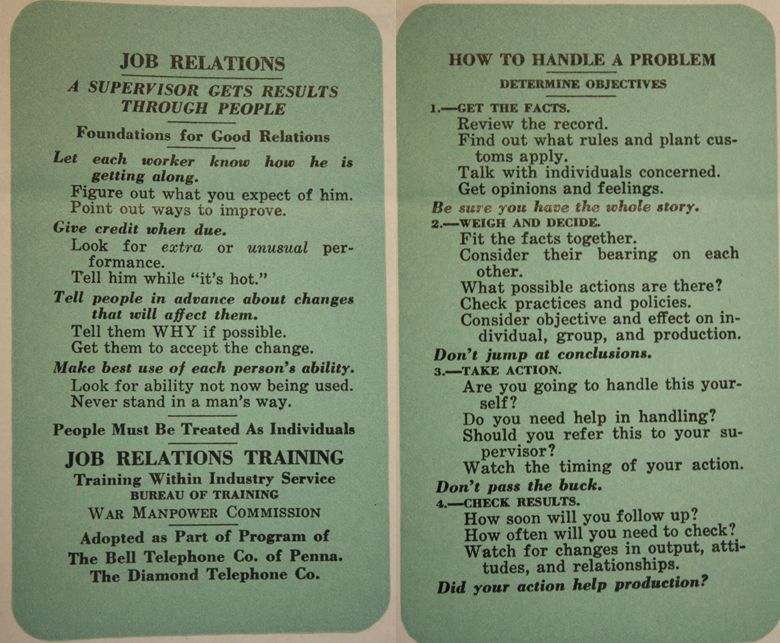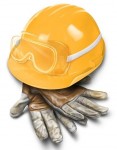 In my previous post on “Respect for People” or “Respect for Humanity,” I gave you a bit of an introduction to this very challenging topic. In this second post of the series I will look at why you should have respect for others, and especially how you can show respect. However, especially the “how to …” part will be difficult.
In my previous post on “Respect for People” or “Respect for Humanity,” I gave you a bit of an introduction to this very challenging topic. In this second post of the series I will look at why you should have respect for others, and especially how you can show respect. However, especially the “how to …” part will be difficult.
Why Respect?
 Respect for people is often seen as altruistic. However, in industry it does have indeed benefits if you have respect for others. It is difficult to respect people who don’t respect you. Hence, having respect helps you to get respect in return. This does not mean that everybody respects you, but over time you will learn to cooperate more with others on the basis of mutual respect, and reduce interaction with others who don’t respect you.
Respect for people is often seen as altruistic. However, in industry it does have indeed benefits if you have respect for others. It is difficult to respect people who don’t respect you. Hence, having respect helps you to get respect in return. This does not mean that everybody respects you, but over time you will learn to cooperate more with others on the basis of mutual respect, and reduce interaction with others who don’t respect you.
Respect also overlaps with trust. Mutual respect often includes mutual trust. And who would you rather do business with? A company that you can trust, or another company that may be 10% cheaper but you have to watch them every move so as not to get cheated? Hence, respect often makes good business sense. It is difficult to have a sustainable business model based on cheating, although some companies manage that too. (Surely you know a company you hate and wonder why they are still around).
Respect for humanity also includes not wasting the time of your people. That also makes clear business sense, as it better uses the valuable time of your people. This time is valuable to the people (as it is their time) as well as you (as you are paying for the time).
Training also makes your people more skilled and hence more valuable. The better they can do their work, or even learn new skills, the more they can contribute to your company.
So, How to Show Respect?
 The million-dollar question is now: How do you show respect for humanity? This is tough. This is the reason why I put off writing this blog post for so long, since it is difficult to give a concise answer. There is unfortunately no “5 Steps to Respect for Humanity.” Even if there was, I would doubt its validity. There are also no lean programs or consulting projects on “Respect for Humanity.”
The million-dollar question is now: How do you show respect for humanity? This is tough. This is the reason why I put off writing this blog post for so long, since it is difficult to give a concise answer. There is unfortunately no “5 Steps to Respect for Humanity.” Even if there was, I would doubt its validity. There are also no lean programs or consulting projects on “Respect for Humanity.”
A few things are easy. Improve safety. Invest in training. Develop your people. These things can be done even if a manager has a total lack of social skills.
But a lot of the other stuff is very fluffy. Since respect is always between two people, the best way depends on both sides. Some managers may be too aggressive and should tone it down. Others are not aggressive enough and should become more so. On the other hand, being more aggressive toward someone who is easily triggered may turn out badly, whereas another person actually may need a (verbal) kick to improve.
There are, however, guidelines for some aspects. One of my favorites is from Training within Industry (TWI), in particular the Job Relations (JR). Even though it is seventy years old now, the guidelines are still good. Below is the summary of Job Relations on how to get along with other people. Coincidentally, Toyota uses very similar steps in problem solving, possibly with a larger focus on the shop floor (gemba). More details in my post on Job Relations.

One important aspect of respect at Toyota is time. It is considered disrespectful to let the worker wait. Assume the worker sets up an automatic process for twenty seconds, and then has to wait another thirty seconds while the process runs. This waiting time is considered disrespectful! You are wasting the time of the worker, and hence have no respect (okay… less respect) for the abilities of the worker.
 Another important aspect of respect is safety. You should be able to provide a safe working environment for your people. Putting in the effort to protect the health of your people is definitely needed for respect.
Another important aspect of respect is safety. You should be able to provide a safe working environment for your people. Putting in the effort to protect the health of your people is definitely needed for respect.
Another important aspect is training. Having proper training can help people become better at what they do. Toyota puts a lot of effort into training, probably much more than many other companies.
There is also a host of general literature on leadership and how to deal with other people. One of the classics is How to Win Friends & Influence People by Dale Carnegie, but there are many more. Most of this literature focuses on interpersonal skills or management skills. This overlaps quite a lot but is not identical to respect for humanity.
One very important aspect that often falls short is listening. Listen to your people. Just being heard is a sign of respect, even if you cannot solve your people’s problems. Even better is active listening, where you occasionally ask some questions and stay engaged. Listen to people regardless of their hierarchy or importance. Don’t even think about automating this digitally (“They all can send me an email anytime, and I read it when I have time …”).
Try to avoid blaming others. I know, blaming others is a favorite pastime in many companies, but it wastes a lot of energy and it does not generate respect. While I was at Toyota, I was never blamed for anything. and rarely was anybody else. When I worked for other companies in Europe, not a week went by without someone trying to blame me (or anybody else but them) for something.
And this should be obvious: no lying or cheating. Respect is a lot about trust, and you can neither trust nor respect someone who cheats.
In my next post I will go into more detail on why respect for people is so difficult. I will also show you one tool that I think can really help. And since I hate cliffhangers just to keep you suspended, this tool is feedback. But now you must come back and read the next article too! In the meantime, go out, respect humanity by actions and not by words, and organize your industry!
Series Overview
- Respect for People – Introduction
- Respect for People – Why and How
- Respect for People – It’s Difficult…
Other Good Articles on Respect for People
I am not the only one writing about respect. Here are some other online articles that I found useful:
- Michel Baudin “This “respect for people stuff””
- Michel Baudin More on Toyota’s “Respect for Humanity”
- Mark Grabham “Toyota, Respect for People (or “Humanity”) and Lean“
P.S.: These blog posts are based on a question by Mário Puccini Coelho. Thanks for asking 🙂

Well done. This is one of the toughest skills to master but has all of the benefits you describe. The most difficult time I had adjusting to Toyota was patience.
Dear Christoph, thanks for the post. Your “feedback tool” has inspired me to put it into the “check” step of the PDCA cycle. The “plan” is the objective and commitment to respect your partner in a relationship, the “do” is the execution with maximum care, “check” is the direct or indirect feedback on how you have done, and “act” is the adjustment you do based on the previous step. Best regards.
Sounds great. Using PDCA for respect 🙂
In the introductory post “Respect for people”, I started thinking of ways to display respect towards others. I concluded 3 approaches to actively show respect for others: listening, setting boundaries, and value people’s time.
Listening is essential, a simple skill that many have not mastered.
Setting boundaries is fundamental to create a healthy work environment.
Value people’s time. Time is valuable for everyone.
I agree with training and safety as ways to show respect for others. By training others, we empowered to perform better.
I consider yelling a sign of disrespect and rudeness, and It should never be tolerated in the workplace.
Hi Ingrid, listening/boundaries/time: Sounds like a good approach! I like it.
Christoph, I found this post interesting considering, not enough people understand the importance of respect and trust. Someone would rather do business with a company that they trust rather than a company that is cheaper but unreliable. My question is do you think too much respect is bad? I believe if you’re in a high and powerful position and are handing out too much credit and respect to individuals, you can be taken advantage of. There are certain individuals that feed off of taking advantage of those who seem weak or unaware. I believe every manager should have a certain line that shouldn’t be crossed, thus showing they should receive more respect than given.
Hi Jason, Respect is a tit for tat game. You should initially give it, but if you get none in return then you should take actions to protect your interest. You don’t want to become everybody’s fool. As for the high and powerful, it depends on the culture. Many European cultures expect higher ups to be humble, whereas Asian cultures would be confused by a humble top executive or monarch. But certainly the position plays a role.